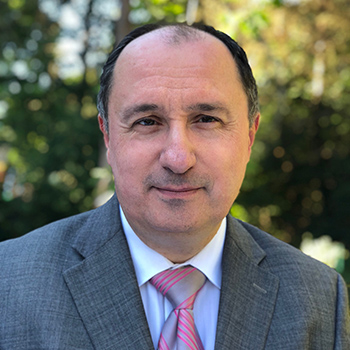Piotr Piecuch

- MSU Foundation Professor, University Distinguished Professor
- Chemistry
- Physics and Astronomy
Bio
Piotr Piecuch is a world-renowned theoretical and computational chemist and physicist. Of particular importance are his landmark contributions to coupled-cluster theory, as applied to many-electron systems and atomic nuclei, his work on intermolecular forces, and applications of computational approaches to problems ranging from chemical reactivity in gas and condensed phases to molecular spectroscopy and photochemistry. He is a co-author of the widely used GAMESS software. He is a professor in the MSU Department of Chemistry and an adjunct professor in the MSU Department of Physics and Astronomy. His research has led to more than 230 publications and about 300 invited lectures in nearly 30 countries.
Piecuch received his masters and doctoral degrees from the University of Wroclaw, Poland. After joining the MSU faculty as an assistant professor in 1998, he was promoted to associate professor in 2002, professor in 2004, University Distinguished Professor in 2007, and MSU Foundation Professor in 2020. Prior to joining MSU, he held postdoctoral and faculty appointments at the University of Wroclaw, University of Waterloo, Canada, University of Arizona, University of Toronto, Canada, and the University of Florida. While at MSU, Piecuch has held visiting professorships in the United States, Japan, and Portugal.
Piecuch has earned numerous honors throughout his career, including being elected to the International Academy of Quantum Molecular Science and European Academy of Sciences, Arts, and Humanities and being named a Fellow of the American Association for the Advancement of Science, Royal Society of Chemistry, American Physical Society, and Alfred P. Sloan Foundation, Distinguished Fellow of the Kosciuszko Foundation Collegium of Eminent Scientists, and Invited Fellow of the Japan Society for the Promotion of Science. He was also named a Xingda Lecturer by Peking University, Lawrence J. Schaad Lecturer in Theoretical Chemistry by Vanderbilt University, S.R. Palit Memorial Lecturer by Indian Association for the Cultivation of Science, and Clark Way Harrison Distinguished Visiting Professor by Washington University in St. Louis
